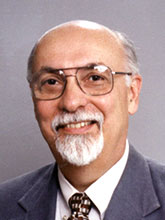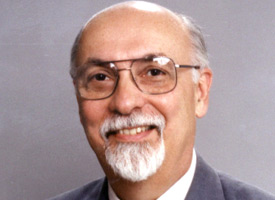With Dr. Bruce Hartung
December’s “Pressure Points” began with a reader’s question: “Do you have any ideas about why I, a pastor for several decades, would be running with my feelings increasingly close to the surface? … Being down in the dumps sometimes and more easily irritated and anxious characterize my life now. I don’t like this.”

That column sparked a number of thoughtful and helpful responses. Following are some of those responses (in italic) and my comments about them.
I am a registered nurse who is now serving as a parish nurse in an LCMS congregation. If my pastor spoke to me about such feelings, my first question would be, “When did you last have a thorough physical by your primary-care physician?” I would want a medical reason ruled out, as there are many conditions that can cause those feelings. Hypothyroidism and chemical depression come to mind, plus I would want all sorts of blood work to rule out anything physical. …
As a parish nurse, I have worked in our parish-nurse booth at several regional pastors conferences. We have lots of material to share, as well as blood-pressure screening. I do not know about other districts, but the pastors avoid us like the plague. I mean totally being ignored. …
I am not saying that the parish ministry is not difficult. I have been married to a pastor for many years.
Perhaps this pastor is depressed and overworked, but let’s rule out a medical problem first.
These are excellent recommendations, neither of which was in the recommendations I gave in the December column. Thanks for these important additions to utilize parish-nurse expertise in districts and congregations and to get a complete physical.
Another response came from a pastor:
This man’s case was me to a “T” in the last five years.
I also was confronted with one horrible tragedy after another amongst the members of my congregation. And as the years went by and I ministered to each and every one of these, I noticed it started affecting me in the exact same way it was affecting this man.
Then several years ago, I was attending a conference in St. Louis where the after-dinner speakers were introducing us to a new pastoral spiritual resource called DOXOLOGY. In that presentation … Dr. Beverly Yahnke laid out the steps to a concept I had never heard of before, called compassion fatigue.
For the next 20 or so minutes, I listened to Dr. Yahnke lay out an 11-step process by which this phenomenon shows itself. From steps one through eight, I confess to feeling like she had been sitting with me both in my office and as I made my calls to people — it was almost scary how on-the-nose each of these steps was. I had the privilege of being able to become a DOXOLOGY attendee … . As part of the program for pastors, that 11-step program was laid out once again. By that time, I not only felt connected with steps one through eight, but nine and 10, as well … . In my case, both life and marriage are much better now.
Another excellent recommendation! In my book, Holding Up the Prophet’s Hand (available from Concordia Publishing House) and in the December column, I call this secondary traumatic stress. It affects folks who walk closely enough with people to feel with them. This builds up over time if not dealt with directly. Our parish leaders need to be aware of this dynamic, as well, because they can be very helpful in supporting pastors (and other workers in the church) who want to access good continuing education that addresses important emotional and spiritual concerns.
The pastor whose letter is quoted appears to me to have a great deal of pain. In my experience, pastors and others in the helping professions often understate the depth of their pain. Therefore, it seems to me that professional help would be called for. … It seems to me that highlighting for him the extent of loss that he has experienced and the need to grieve, rather than just being strong for others, might be helpful.
This is an important option. Our Concordia Health Plan has wonderful counseling and Employee Assistance benefits that may be under-utilized in our circles. Let’s use them. I agree: many of our workers do understate the emotional effect their work has on them and attempt to deal with it individually rather than utilize the resources that are available such as, in this case, counseling.
The Rev. Bruce M. Hartung, Ph.D., is professor of Practical Theology at Concordia Seminary, St. Louis. He can be reached at hartungb@csl.edu.
